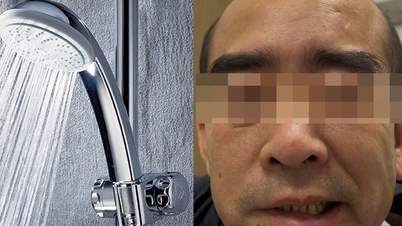I am 59 years old, smoke, sleep little and have difficulty falling asleep but snore loudly. Does heavy snoring increase the risk of stroke? (Quang Tung, Ho Chi Minh City)
Reply:
Stroke risk factors are divided into two groups. The first group is non-modifiable risk factors such as gender, race, and genetics. The second group is modifiable risk factors, which account for more, such as high blood pressure, diabetes, high cholesterol, obesity, lack of exercise, and smoking.
Snoring is common in many people, potentially leading to sleep apnea. Meanwhile, sleep apnea is a risk factor or warning sign of abnormalities in the body that can easily lead to stroke. People who have had a stroke are often considered by doctors for sleep apnea.
People who snore should be screened for stroke. In addition to clinical examination and other imaging tests, patients may undergo polysomnography.
The polysomnography system consists of many different electrodes, attached to the corresponding parts of the patient during sleep. Thereby, the machine records related parameters and changes such as electroencephalogram, eyeball, electromyogram, electrocardiogram, airflow through the nose and mouth, chest and abdominal muscle movements, blood oxygen concentration, snoring, body posture during sleep, limb movements...
After a night of polysomnography, the doctor has enough data to fully evaluate the patient's sleep cycle, heart rate, blood pressure, other activities, determine sleep apnea, sleep epilepsy, and health risks (if any).
If you snore, sleep little, have trouble sleeping, you should see a doctor. If your respiratory, cardiovascular, or nervous system is abnormal, your doctor will treat you appropriately and prevent related diseases, including stroke.
Dr. Nguyen Thi Minh Duc
Head of Neurology Department, Tam Anh General Hospital, Ho Chi Minh City
| Readers ask questions about neurological diseases here for doctors to answer |
Source link

































![[Photo] General Secretary To Lam begins official visit to Russia and attends the 80th Anniversary of Victory over Fascism](https://vphoto.vietnam.vn/thumb/1200x675/vietnam/resource/IMAGE/2025/5/8/5d2566d7f67d4a1e9b88bc677831ec9d)





































































Comment (0)